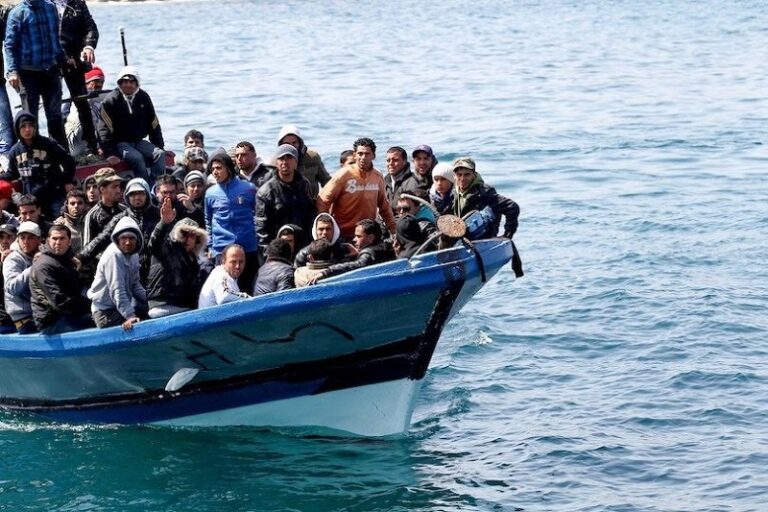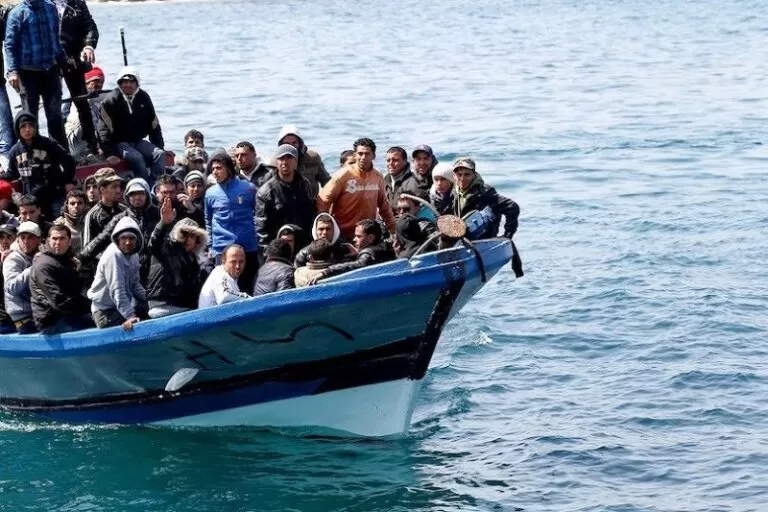

the european union justifies its assistance to refugees in libya
Investigators working for the United Nations said that the European Union helped people break the law and violate human rights in Libya, a mostly lawless country in North Africa. On Tuesday, the European Union defended its record of helping migrants in Libya who were in trouble. During a press conference in Brussels, Peter Stano, a representative for the European Commission, said that the group was working hard to find a solution to the “very difficult situation on the ground” and was also looking into the concerns that were raised.
“And indeed, of course, we are aware of these most recent findings. And we are also very aware of the very difficult situation on the ground, which we are trying to solve. We have also worked with the United Nations fact-finding mission when it was in Libya, mainly through our delegation in Tripoli. So, of course, we are taking seriously the concerns they are raising. We are looking into it, and we are working with it.”
People from all over northern Africa and other parts of the world who are prepared to make the dangerous crossing of the Mediterranean Sea in boats that are in poor condition make their way to Libya as one of the most common points of departure on their journey to Europe in the hope of finding a better life or sanctuary there. The International Organization for Migration (IOM) of the United Nations says that at least 529 migrants were found dead and 848 went missing off the coast of Libya in 2017.
The Libyan coastguard stopped more than 24,680 people from leaving the country. Those people were then brought back. In a report that was given to the UN on Monday by a fact-finding mission to Libya, an investigator named Chaloka Beyani said that EU help to the Libyan government, migration department, and coastguard “has helped and abetted the crimes,” including crimes against humanity.
The report says that migrants, some of whom may have been eligible for asylum, “were caught, detained, and dropped off in Libya solely to keep them from entering Europe as a result of both European immigration policy and the economic agenda of migration in Libya through their subsequent detention and exploitation.” According to the report, investigators think that the EU and its member countries “directly or indirectly” gave the Libyan Coast Guard and the Directorate for Combating Illegal Migration money, technical help, and equipment like boats. These boats were used to intercept and detain migrants.
“We are covering the needs of the people who are in Libya, both the migrants and the host communities that are affected by this. So this is where the money goes. So I don’t agree with the claims that our money is going to finance the business model of the smugglers or of those who are misusing and mistreating people in Libya; quite the contrary. The majority of the money goes in order to take care of these very people,” added Peter Stano.
South African President Cyril Ramaphosa defended his nation against claims of white discrimination made by tech magnate Elon Musk. After…
Hilton launched Signia by Hilton for its first appearance in Egypt and Africa through its hotel expansions. These hotels at…
UNICEF reported that, nearly 2900 people died of cholera across Eastern and Southern African countries while children suffer most greatly…
Enza, based in the United Arab Emirates, obtained $6.75 million in initial investment funding from Algebra Ventures and Quona Capital.…
US Secretary of State Marco Rubio ordered South African Ambassador Ebrahim Rasool to leave America by March 21 because he…
Early 2025 ends with IPL fever in India and cricket fans receive good news of an international schedule full of…
This website uses cookies.